ECLAC organizes the 4th and the final session of the ROSA Online Technical Assistance: Towards sustainable and inclusive tariff regulation in El Salvador
Work area(s)
Topic(s)
The series of ROSA Webinars aimed to provide tools to improve the regulatory and tariff system in El Salvador, addressing the country's specific challenges in this area. Over the course of four sessions, the theoretical and practical aspects of the country's tariff regulation were analyzed and interactive exercises were carried out to deepen the participants' knowledge.
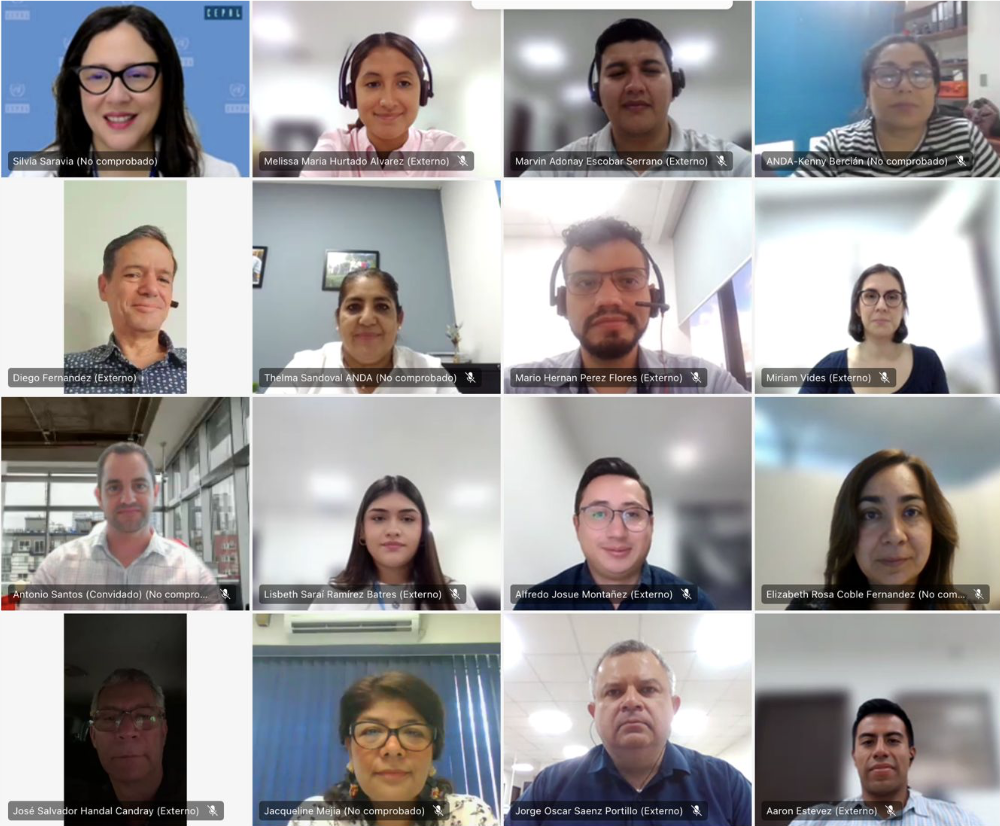
The last session, held on June 7th, was led by Dr. Silvia Saravia Matus, Economic Affairs Officer of the Water and Energy Unit of the Natural Resources Division of ECLAC, and her team of experts and included with the participation of representatives of various national counterparts, such as the Salvadoran Water Authority (ASA), the National Administration of Aqueducts and Sewers (ANDA) and the Ministry of Tourism.
The event began with some warm welcoming words by Dr. Silvia Saravia Matus and continued with a brief review of the contents seen in the previous meetings in order to address a practical application of all the concepts using the case of the ACRASAME water board with the objective of consolidating what was learned and answering questions.
Mr. Diego Fernández, Senior Expert of ECLAC, analyzed the tariff structure of the cooperative of 730 users and proposed the creation of two categories of users, subsidized residential and non-subsidized residential, and the rationalization of the consumption blocks to three blocks. He also proposed the implementation of a self-financed cross-subsidy scheme.
Mr. Alfredo Josue Montañez, ECLAC Expert, detailed the analysis of ACRASAME's client growth and provided detailed projections of annual investments for ACRASAME. He also presented a comprehensive proposal for a rate structure for water consumption, addressing fixed and variable charges for subsidized and unsubsidized users, as well as the impact on monthly bills.
The session aroused great interest in the audience, generating numerous interesting questions and reflections on how to improve the willingness to pay for a service that is truly worthwhile and emphasized the importance of a tariff structure that guarantees the sustainability of a quality service in the long term, considering the perception of families and the need for socialization. Finally, the importance of collaborative work between El Salvador and ECLAC and the next steps to follow were highlighted.
Related content
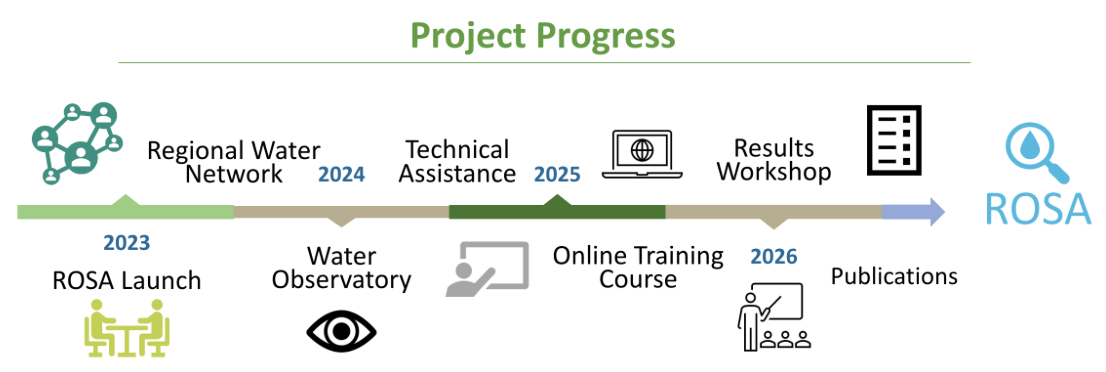
Progress of the ROSA Project: Network and Observatory for Water Sustainability - Year 1: February 2023 - March 2024
The water and sanitation crisis requires a holistic, systemic and multilateral response to accelerate the achievement of SDG 6. In the region there is a lack of available data on the governance,…
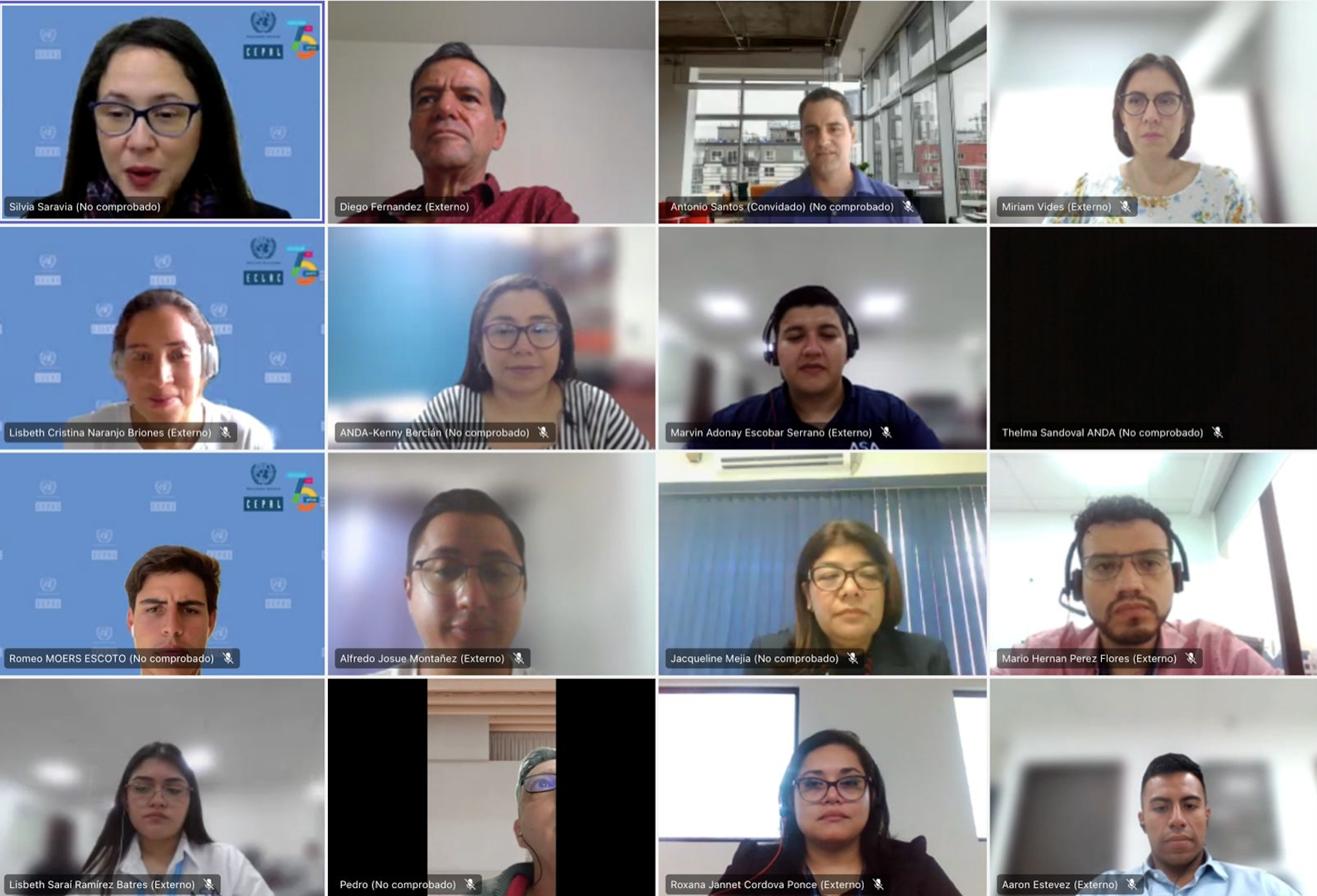
First Meeting of the Online Seminar Series: "Towards Sustainable and Inclusive Tariff Regulation in El Salvador"
ECLAC launched the online seminar series "Towards Sustainable and Inclusive Tariff Regulation in El Salvador" as part of the ROSA project. The first meeting, held on May 13, featured participation…
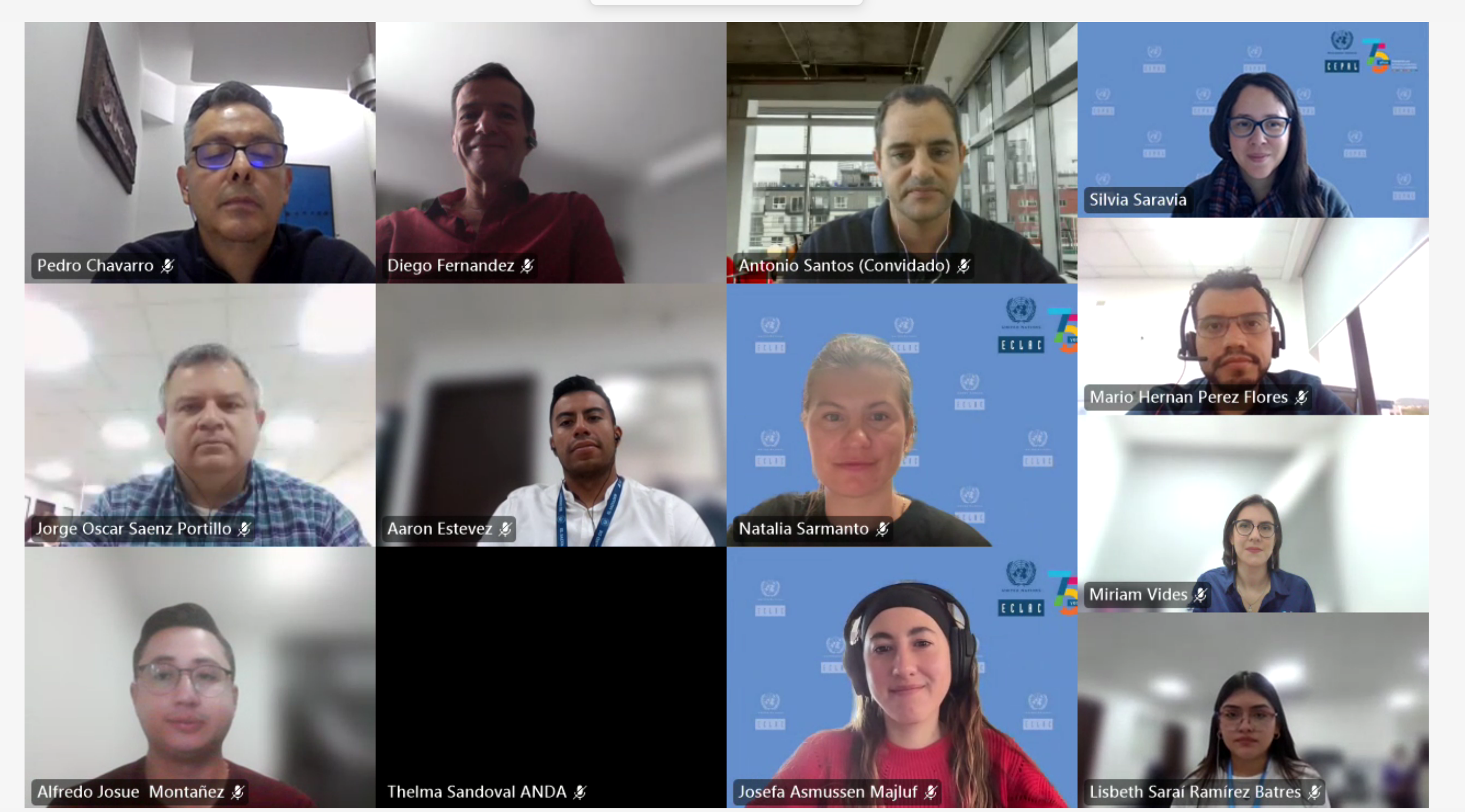
ECLAC Held the Second Meeting of the Online Seminar Series: "Towards Sustainable and Inclusive Tariff Regulation in El Salvador"
On May 17, ECLAC conducted the second session of the online seminar series "Towards Sustainable and Inclusive Tariff Regulation in El Salvador," as part of the ROSA project. This session brought…
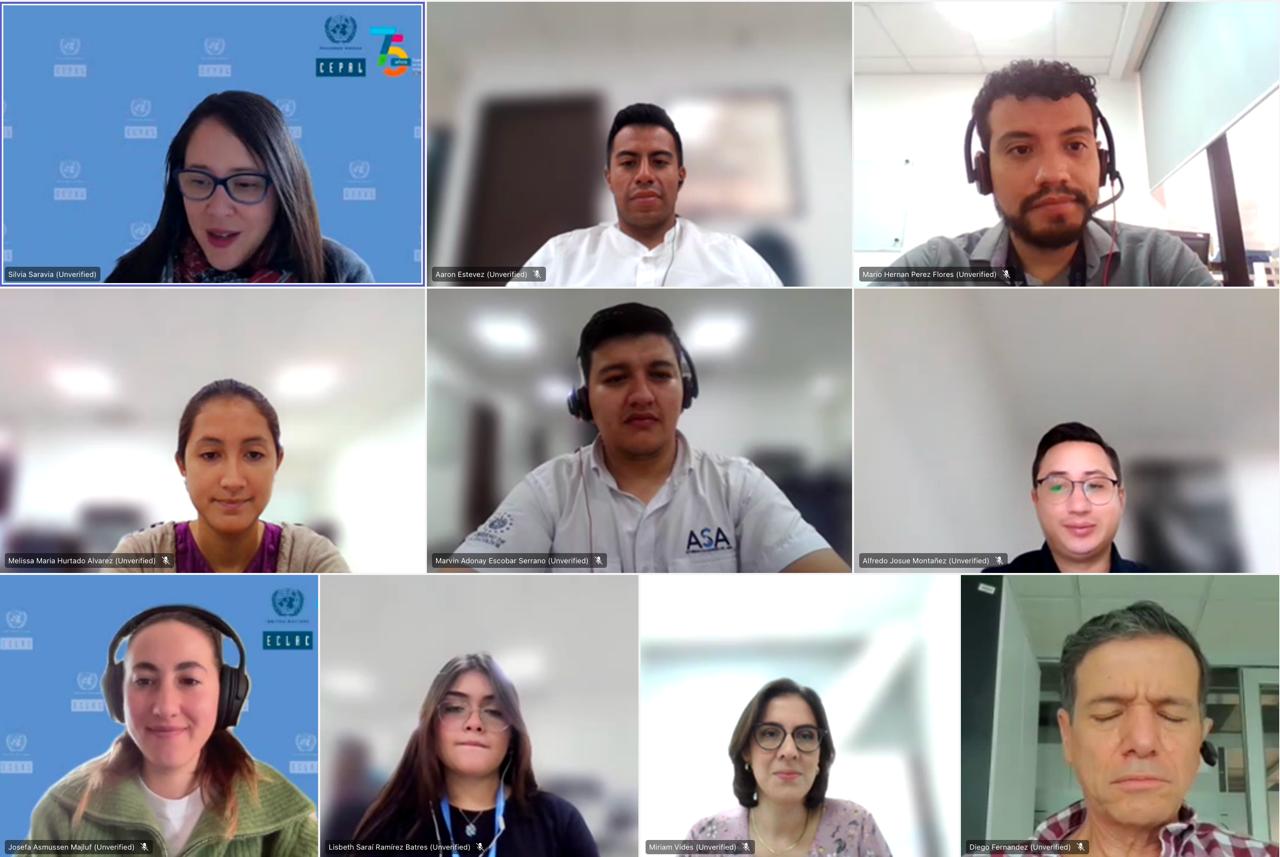
The Natural Resources Division organized the third session of the Online Seminars: "Towards Sustainable and Inclusive Tariff Regulation in El Salvador"
On May 31, CEPAL held the third session of the Online Seminars "Towards Sustainable and Inclusive Tariff Regulation in El Salvador," as part of the ROSA project. This session focused on analyzing the…